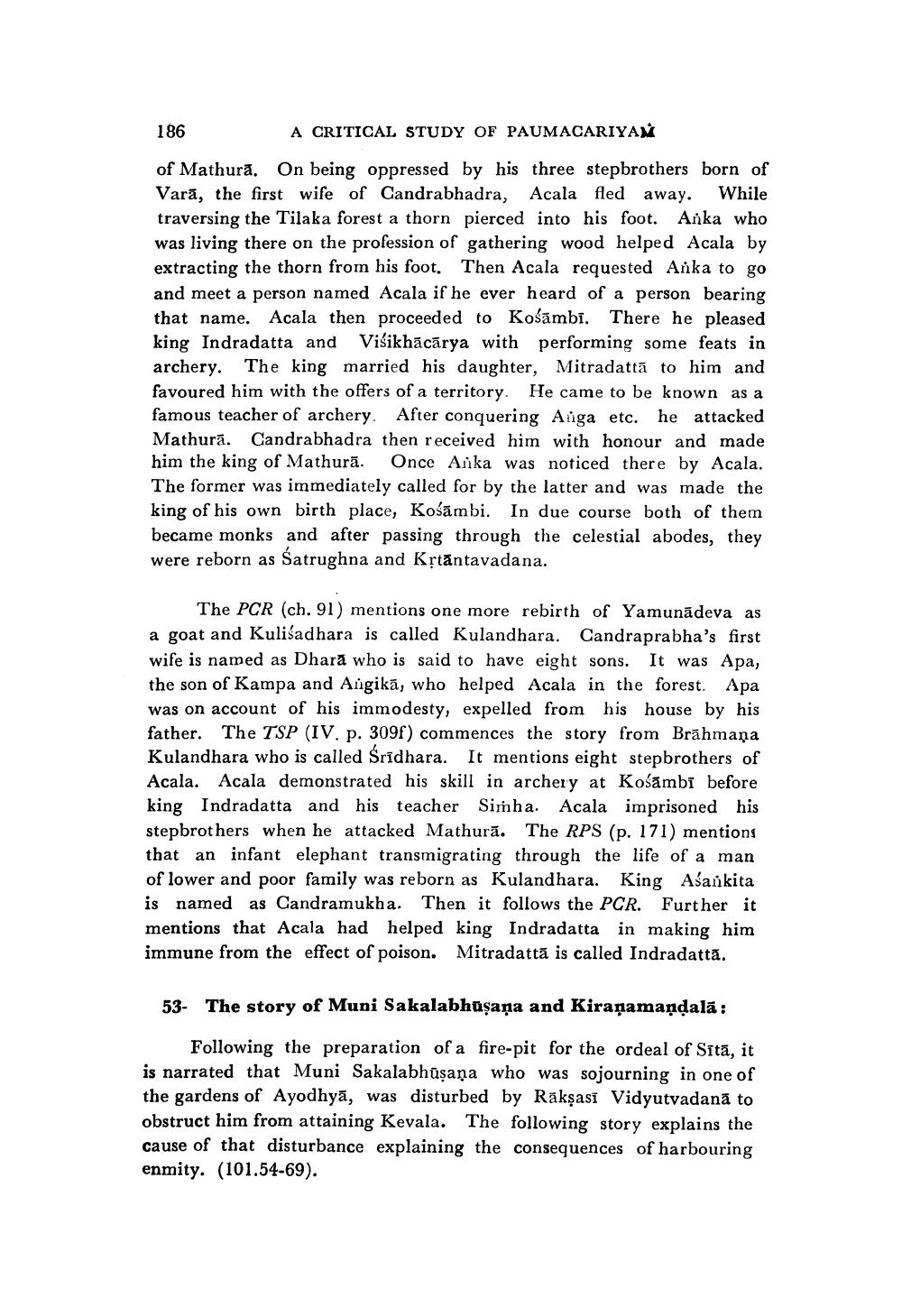________________
186
A CRITICAL STUDY OF PAUMACARIYAM
of Mathura. On being oppressed by his three stepbrothers born of Vara, the first wife of Candrabhadra, Acala fled away. While traversing the Tilaka forest a thorn pierced into his foot. Anka who was living there on the profession of gathering wood helped Acala by extracting the thorn from his foot. Then Acala requested Anka to go and meet a person named Acala if he ever heard of a person bearing that name. Acala then proceeded to Kośambi. There he pleased king Indradatta and Viśikhācārya with performing some feats in archery. The king married his daughter, Mitradatta to him and favoured him with the offers of a territory. He came to be known as a famous teacher of archery. After conquering Anga etc. he attacked Mathura. Candrabhadra then received him with honour and made him the king of Mathura. Once Anka was noticed there by Acala. The former was immediately called for by the latter and was made the king of his own birth place, Kośambi. In due course both of them became monks and after passing through the celestial abodes, they were reborn as Śatrughna and Kṛtāntavadana.
The PCR (ch. 91) mentions one more rebirth of Yamunadeva as a goat and Kuliśadhara is called Kulandhara. Candraprabha's first wife is named as Dhara who is said to have eight sons. It was Apa, the son of Kampa and Angika, who helped Acala in the forest. Apa was on account of his immodesty, expelled from his house by his father. The TSP (IV. p. 309f) commences the story from Brāhmaṇa Kulandhara who is called Śrīdhara. It mentions eight stepbrothers of Acala. Acala demonstrated his skill in archery at Kosambi before king Indradatta and his teacher Simha. Acala imprisoned his stepbrothers when he attacked Mathura. The RPS (p. 171) mentions that an infant elephant transmigrating through the life of a man of lower and poor family was reborn as Kulandhara. King Asankita is named as Candramukha. Then it follows the PCR. Further it mentions that Acala had helped king Indradatta in making him immune from the effect of poison. Mitradatta is called Indradattă.
53- The story of Muni Sakalabhūṣaṇa and Kiraṇamaṇḍalā:
Following the preparation of a fire-pit for the ordeal of Sita, it is narrated that Muni Sakalabhuṣaṇa who was sojourning in one of the gardens of Ayodhya, was disturbed by Rākṣasi Vidyutvadanā to obstruct him from attaining Kevala. The following story explains the cause of that disturbance explaining the consequences of harbouring enmity. (101.54-69).




